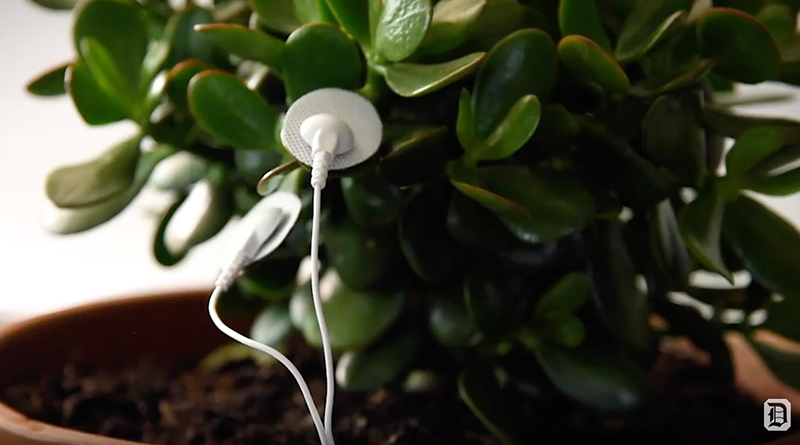Have You Ever Heard a Plant Play Music?
A Duquesne professor is making music with unlikely collaborators—houseplants.
Dr. Paul Miller, assistant professor of musicianship in the Mary Pappert School of Music, and his co-researcher Brian Riordan from the University of Pittsburgh, have been experimenting with common houseplants to determine musical ways in which composers and performers can interact with plants.
The project involves attaching electrodes to a plant’s leaves. The electrodes collect the plant’s electrical output and send it to a special interface, which boosts the voltage of biologically-generated electrical signals to a level that can be used in a musical synthesizer. A composer or performer can then use the voltage to make sounds, or modify the rhythm, timbre or dynamics of a sound. The procedure can either be done in real time, or the voltage can be recorded and played back later. Miller can analyze voltage patterns by using computer software designed by Riordan specifically for this project.
The pair has experimented with various manipulations to elicit electronic responses from the plant—some of which include burning the plant’s leaves, simulating a solar eclipse or simply touching the plant’s leaves gently.
“Although plants do not have brains, feelings or consciousness, they have evolved sophisticated ways of perceiving the environment, and use electricity to communicate their sensations to their various organs,” Miller explains.
Miller recognizes that some plants and other organisms have been on Earth long before he was and will continue to thrive once he is gone. “One of the great things about our project is seeing our own temporal world as expanded by interacting with plants,” he said. “It helps us to place who we are and our position within this green planet.”
Miller and Riordan recently presented their research at the 2019 Society for Music Theory annual conference in Columbus. Learn more about their work at www.theoryofpaul.net/plants.
Watch a video on the project.

